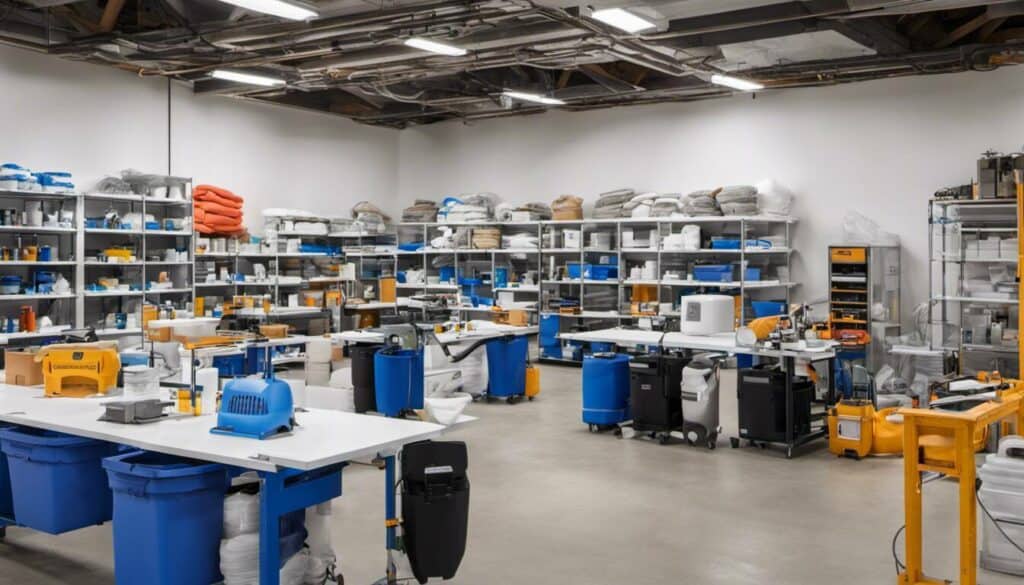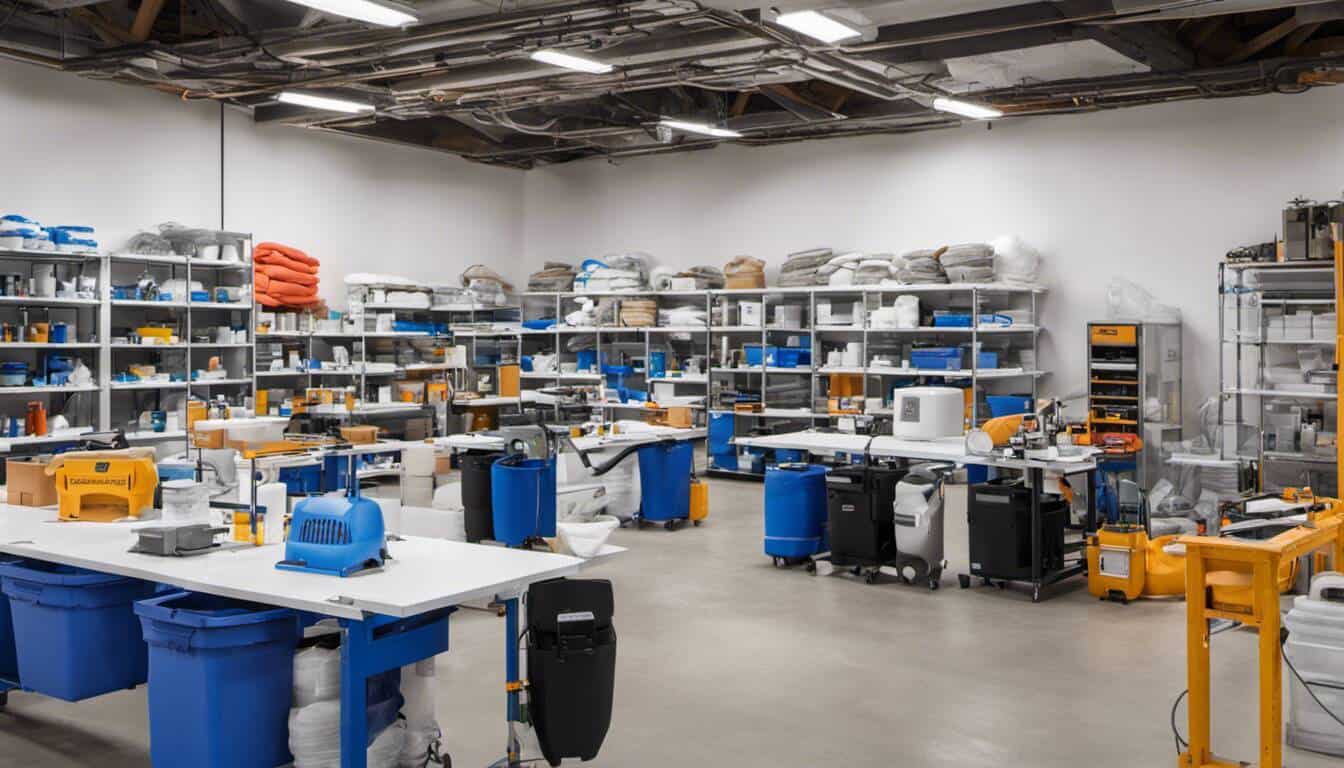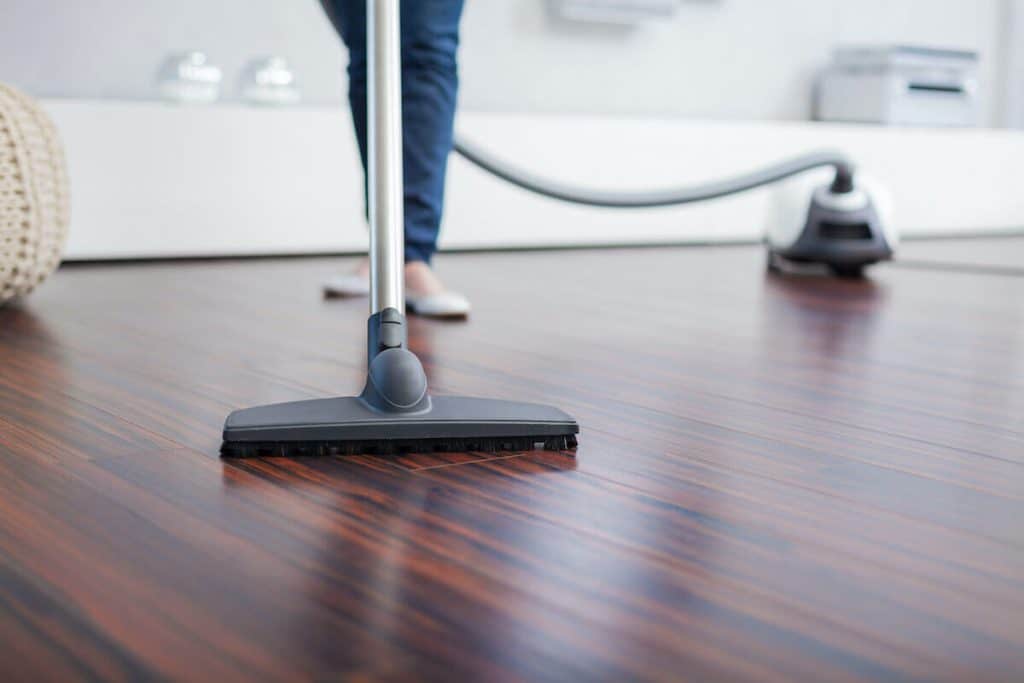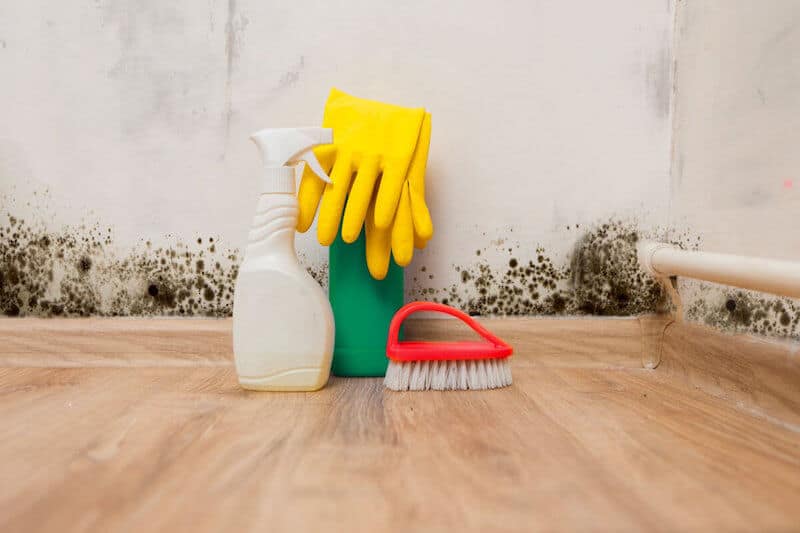Choosing the right mold remediation company was a task I didn’t take lightly. It meant the difference between worrying about my property and my health. This experience was very personal to me as I was tired of feeling constantly ill due to mold in my house. So, I had to do whatever it took to find the right people for the job to ensure all the mold was removed. I put together this guide to simplify the process. With this guide, you can confidently choose a mold remediation company that suits your needs, without any fuss
When choosing a mold remediation company, it is important to consider several factors such as the company’s service area, scheduling, quote and pricing, mold testing abilities, certifications, insurance, cause and extent of mold growth, and customer support. Homeowners should research local options that meet their budget and necessary certifications. Additionally, proper communication with professionals can help understand how they will approach the mold remediation process and address concerns. Hiring certified individuals helps protect homes from lingering threats.
Identifying Your Mold Issue
Recognizing the presence of mold in your home is crucial before embarking on the process of selecting a mold remediation company. Mold can be sneaky and may hide in various areas, including but not limited to the basement, attic, bathrooms, or behind water-stained walls and ceilings.
Not all molds are created equal, and not all visible black mold is toxic. However, it is best to have the mold tested by professionals to determine the type and severity of the mold growth. Testing will provide valuable information about potential health risks of mold that will guide you in choosing the appropriate course of action.
If you notice any signs of mold growth, such as a musty odor, discolored patches on surfaces, or an increase in allergy-like symptoms among household members, it is important to address the issue promptly. Mold has the potential to cause severe health problems and can spread through spores, exacerbating respiratory conditions like asthma or allergies.
For instance, imagine discovering a damp spot behind your bathroom wall after a particularly heavy rainstorm. You notice a musty smell lingering in the air and see some dark discoloration forming along the area. These signs could indicate hidden mold growth that needs immediate attention.
To accurately identify your mold issue, consider hiring certified professionals who specialize in mold testing. They have the expertise and tools necessary to perform accurate measurements inside and outside your home.
Now that we understand how to identify a potential mold problem in our homes, let’s move on to discussing the important factors to consider when selecting a mold remediation company.
- It is crucial to recognize the presence of mold in your home before selecting a mold remediation company. Not all molds are toxic, but it’s best to have the mold tested by professionals to determine the type and severity of the growth. Promptly addressing mold growth is important as it can cause severe health problems. Consider hiring certified professionals who specialize in mold testing for accurate identification of your mold issue.
Selecting a Mold Remediation Company
Choosing a reputable and reliable mold remediation company is vital for effective and safe mold removal from your property. With numerous companies out there claiming to be experts in this field, it’s essential to carefully evaluate their credentials and certifications before making a decision.
The first factor to consider is the company’s credentials and certifications. Look for companies that have been certified by recognized organizations such as the Institute of Inspection, Cleaning and Restoration Certification (IICRC) or the National Organization of Remediators and Mold Inspectors (NORMI). These certifications indicate that the company has undergone proper training and adheres to industry standards.
Some homeowners may question whether certification is truly necessary, but consider this: certifications ensure that the technicians working on your mold remediation project have the knowledge and expertise to handle different types of mold and properly address any potential risks.
Additionally, it is crucial to check if the company carries liability insurance. Proper insurance coverage will protect you from any damages that might occur during the remediation process. Don’t hesitate to ask the company for proof of insurance before hiring them.
An important aspect to investigate is the company’s track record and reputation. Look for reviews and testimonials from previous customers to gain insight into their level of professionalism, quality of work, and customer satisfaction. Personal recommendations from friends, family, or trusted sources can also provide valuable guidance in selecting a reputable mold remediation company.
Lastly, consider additional services offered by mold remediation companies. Some companies may specialize solely in mold removal, while others offer comprehensive services like fire damage restoration, water damage restoration, general cleaning, moisture control, air duct cleaning, radon mitigation, and even biohazard cleanup. Choosing a company that offers a wide range of services may be beneficial if you require additional assistance beyond mold remediation.
- A survey by HomeAdvisor showed that the average homeowner spends between $1,119 and $3,334 when hiring a professional mold remediation company.
- According to the Environmental Protection Agency (EPA), businesses providing mold remediation services must comply with federal regulations under the Clean Water Act and Clean Air Act, underscoring the necessity of hiring certified companies.
- An industry report in 2020 found that over 60% of homeowners opt for private professionals for mold inspection and removal rather than doing it themselves due to health and safety considerations.
Credentials and Certifications
When it comes to choosing a mold remediation company, credentials and certifications are crucial factors to consider. These qualifications provide assurance of the company’s expertise and ability to handle mold-related issues effectively. A reputable mold remediation company should have certifications from recognized organizations such as the Institute of Inspection, Cleaning and Restoration Certification (IICRC) or the National Organization of Remediators and Mold Inspectors (NORMI).
These certifications demonstrate that the company’s technicians have undergone proper training in mold remediation techniques, safety protocols, and industry standards. It ensures they possess the necessary knowledge to assess, contain, remove, and prevent mold growth effectively. Furthermore, certification also signifies that the company follows ethical practices and adheres to strict guidelines while carrying out their work.
For instance, let’s say you’re considering two mold remediation companies for a job. Company A proudly displays multiple certifications indicating their employees’ expertise in mold remediation. On the other hand, Company B lacks any certifications or credentials in the field. In this scenario, it would be wise to choose Company A since they have received professional recognition for their skills.
Additionally, it is essential to verify if the company’s certifications are up-to-date. The field of mold remediation is continually evolving, with new research and best practices emerging regularly. Therefore, choosing a company that stays updated through ongoing training ensures they remain knowledgeable about the latest advancements in technology and techniques, enabling them to offer superior services.
Once you have assessed the credentials and certifications of a mold remediation company, it is equally important to evaluate their reputation and history.
Company’s Reputation and History
The reputation and history of a mold remediation company can provide valuable insights into their level of professionalism, customer satisfaction, and reliability. Researching the company’s reputation can be done through various avenues. One useful resource is online reviews from past clients. Look for mold remediation companies that have consistently positive reviews and high ratings. These testimonials can help gauge the quality of their work and customer service.
Imagine you come across a mold remediation company with numerous negative reviews citing issues such as unfinished work, poor communication, or recurring mold problems after their service. This should raise red flags and prompt you to explore other options.
Just like when you’re choosing a restaurant, you would likely opt for one with glowing reviews and recommendations from friends instead of one with a poor reputation and dissatisfied customers. The same principle applies here – select a mold remediation company that has a solid reputation and positive feedback from past clients.
Doing some digging into the history of a company is also essential. Find out how long they have been in business and research their track record. A well-established company with years of experience is likely to have encountered a wide range of mold-related issues and developed effective solutions over time.
Consider this scenario: You have two options—one is a newly established mold remediation company that opened just six months ago, while the other has been operating for over a decade, successfully serving hundreds of satisfied clients. In this case, it would be wise to lean towards the experienced company since they have proven their ability to handle various mold situations over an extended period.
You can further assess a company’s reliability by checking if they have any unresolved complaints filed against them with organizations like the Better Business Bureau (BBB). While occasional complaints are not uncommon for any business, unsatisfactory resolutions or multiple unresolved complaints may indicate potential issues with their services or customer satisfaction.
Now that we’ve explored the importance of credentials and certifications as well as the role of reputation and history, let’s move on to discussing another crucial aspect—cost estimation processes.
Cost Estimation Process
When it comes to choosing a mold remediation company, understanding the cost estimation process is crucial. It allows homeowners to make informed decisions based on their budget and the extent of mold growth in their property. A reputable mold remediation company will typically provide a comprehensive assessment and evaluation before providing an estimate.
One common practice is to schedule an initial inspection, where professionals assess the affected areas and determine the scope of the mold issue. This involves identifying the cause of mold growth, such as water leaks or poor ventilation, and assessing the overall extent of contamination. Based on these findings, the company will then provide a detailed cost estimate that includes labor, materials, equipment, and any additional services required for complete mold remediation.
For instance, if the inspection reveals widespread mold growth that has affected multiple rooms and requires extensive treatment, the cost estimate may be higher compared to localized mold growth in a small area. The complexity of the remediation process and any additional services needed also play a role in determining the final cost.
It’s important to note that obtaining multiple quotes from different mold remediation companies can help homeowners compare costs and services offered. However, basing your decision solely on price isn’t advisable. Mold remediation requires expertise and specialized equipment, so hiring a company with certified professionals even if it comes at a slightly higher cost might be more beneficial in the long run.
Now that we understand the cost estimation process involved in choosing a mold remediation company, let’s explore another crucial aspect: dealing with mold aftermath.
Dealing with Mold Aftermath
After mold remediation is completed by professionals, there are essential steps homeowners should take to address the aftermath and prevent future mold growth in their property. Dealing with mold aftermath involves implementing preventive measures and maintaining a clean environment.
Firstly, ensure that all sources of moisture or water issues that led to the mold growth have been completely resolved. This may involve fixing leaks, improving ventilation, or addressing any structural issues in the property. By eliminating the underlying cause, you can significantly reduce the chances of future mold infestations.
Next, it’s essential to establish a regular cleaning routine. This includes using specialized cleaning products that effectively kill and prevent mold growth on surfaces like bathroom tiles, walls, or furniture. Regularly inspecting areas prone to moisture, such as bathrooms and kitchens, can help identify potential mold growth early on and take prompt action to mitigate it.
Proper ventilation plays a crucial role in preventing mold as well. Ensure that rooms are adequately ventilated to minimize excessive moisture buildup. Consider using dehumidifiers and other mold removal products in areas with high humidity levels to maintain an optimal environment that discourages mold growth.
Additionally, maintaining proper indoor air quality is important for overall mold prevention and health. Regularly changing air filters and having your HVAC system inspected and cleaned by professionals can help prevent airborne mold spores from circulating throughout your home.
Think of it like maintaining good personal hygiene to prevent illnesses – by consistently following preventive measures and keeping a clean environment, you can significantly reduce the chances of mold taking hold in your home.
Mold Remediation vs. Mold Removal: Clarifying Misconceptions
It’s crucial to clarify the difference between mold remediation and mold removal as there are often misconceptions surrounding these terms. While they may seem interchangeable, understanding their distinctions can greatly impact your decision-making process when choosing a mold remediation company.
Mold Removal
When people think of mold issues, their first instinct might be to simply remove the mold from the affected area. However, solely focusing on mold removal can lead to incomplete solutions. Traditional mold removal typically involves physically removing visible mold growth using techniques such as scrubbing or wiping surfaces with a bleach solution.
If only the visible signs of mold are removed, without addressing the underlying cause or potential hidden mold, it can result in recurring mold problems in the future. Additionally, disturbing mold growth without proper precautions and containment measures can spread microscopic spores throughout the property, potentially causing health concerns for occupants.
Mold Remediation
On the other hand, mold remediation is a more comprehensive approach that not only involves removing visible mold but also addresses the root cause of moisture or humidity issues leading to mold growth. The goal of mold remediation is to restore a healthy indoor environment by eliminating existing mold growth and preventing its return.
For instance, if mold is discovered behind water-stained ceilings, a good mold remediation company will not only remove the visible mold but also investigate the source of the water issue and provide recommendations for fixing it. This holistic approach ensures that both the symptoms (the visible mold) and the cause (water intrusion) are addressed, minimizing the chances of future reoccurrence.
By focusing on remediation rather than just removal, professionals identify and address any potential hidden sources of moisture or other factors contributing to mold growth. This can include addressing issues such as high humidity levels, condensation problems, or water leaks. Through targeted remediation techniques, such as drying wet materials and implementing proper ventilation measures, the underlying cause of mold infestation is eliminated.
Now that we’ve clarified the distinction between mold remediation and mold removal, it’s important to understand why selecting a company that specializes in mold remediation is generally the better choice for effectively resolving your mold problems.






